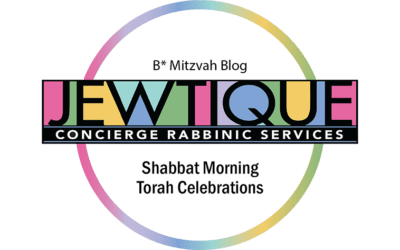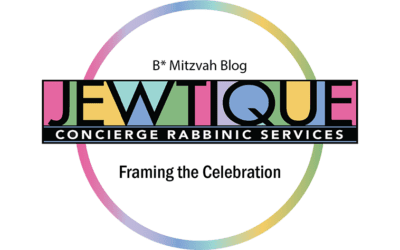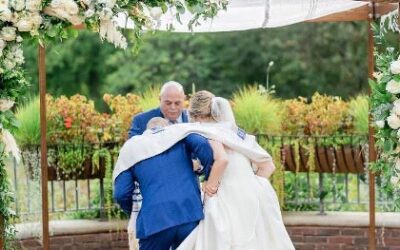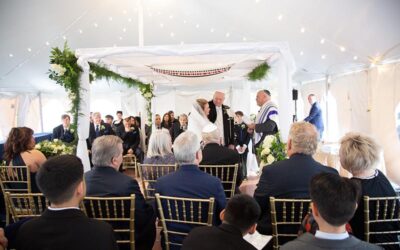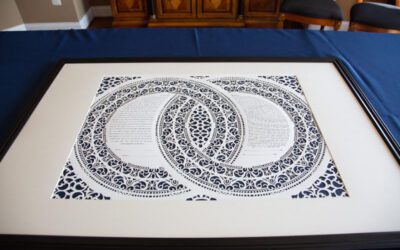Shabbat (Saturday) Morning Torah Celebrations
Traditionally b* mitzvah celebrations are based around the Torah reading ceremony. The structure of the Shabbat (Saturday) morning Torah reading offers a maximum of potential honors that can be extended, and has been the main platform for b* mitzvah for countless...
Framing the Celebration: B* Mitzvah v Coming of Age
Most people are surprised to learn that the entire idea of a bar mitzvah ceremony didn’t exist until around the 1400’s. In fact, the Talmud’s discussion about coming of age depended on the presence of physiological signs of puberty. The convention of coming of age at...
Maintaining Your Intentionality
Wedding planning often brings stress that is second only to packing for a move. Decisions over matters small and large, generating and managing countless lists, and the general intensity that accompanies these actions are enough to make eloping to Margaritaville a...
Personalizing Your Ceremony
The standard Jewish wedding ceremony has a lot of room for personalization. There are a number of traditional customs that are commonly found beyond orthodox ceremonies. Candles are often used in processionals. Consider an alternative of each of the couple lighting a...
The Wedding Canopy-Huppah
The Huppah represents a new couple’s first home. It is so emblematic of the Jewish wedding ceremony that the entire final half of the liturgy is nicknamed “Huppah” by Jewish tradition. Traditionally just a cloth held up by four poles, the huppah has evolved and there...
Ketuba-The Jewish Marriage Document Beyond the Tradition
Many couples seek an alternative to the traditional ketuba. This is especially true when one of the primaries is not Jewish, or when the couple is LGBTQ+. The traditional ketubah does not accommodate the realities of these couples' lives. After all, the Talmud’s basic...
The Ketuba (Marriage Contract)-Traditional Variations
The traditional ketuba (pl. ketubot) we know today was developed by the Talmudic Sages, and was a radical innovation in its time. It precluded summary divorce of a wife by a husband. The financial protections ranged from one year to two years of full living costs paid...
Jewish Ceremonies for LGBTQ+ Couples
“It is not good for a human to be alone” is the vision from Genesis that underscores the Jewish value of marriage as a sanctified, loving, companionship. The ability for rabbis and cantors to officiate such ceremonies for LGBTQ+ couples has never been more positive....
What Makes A Jew-“ish” Wedding? The Not So Traditional Answer
Here are two comments I regularly hear in one way or another: “Rabbi, we’re both Jewish but want a Jew-ish ceremony. You know…sort of ‘inspired by’ but flexible.” “Rabbi, I’m Jewish. They’re not. We want to incorporate Jewish elements into our ceremony, but maybe...
What Makes A Jewish Wedding? The Traditional Answer
The traditional answer to this question presumes two Jewish people, a bride and a groom, and the traditional elements in this rite as understood for centuries. The details of the rites have varied over time and place. In the Middle Ages, the two parts of the ceremony...

